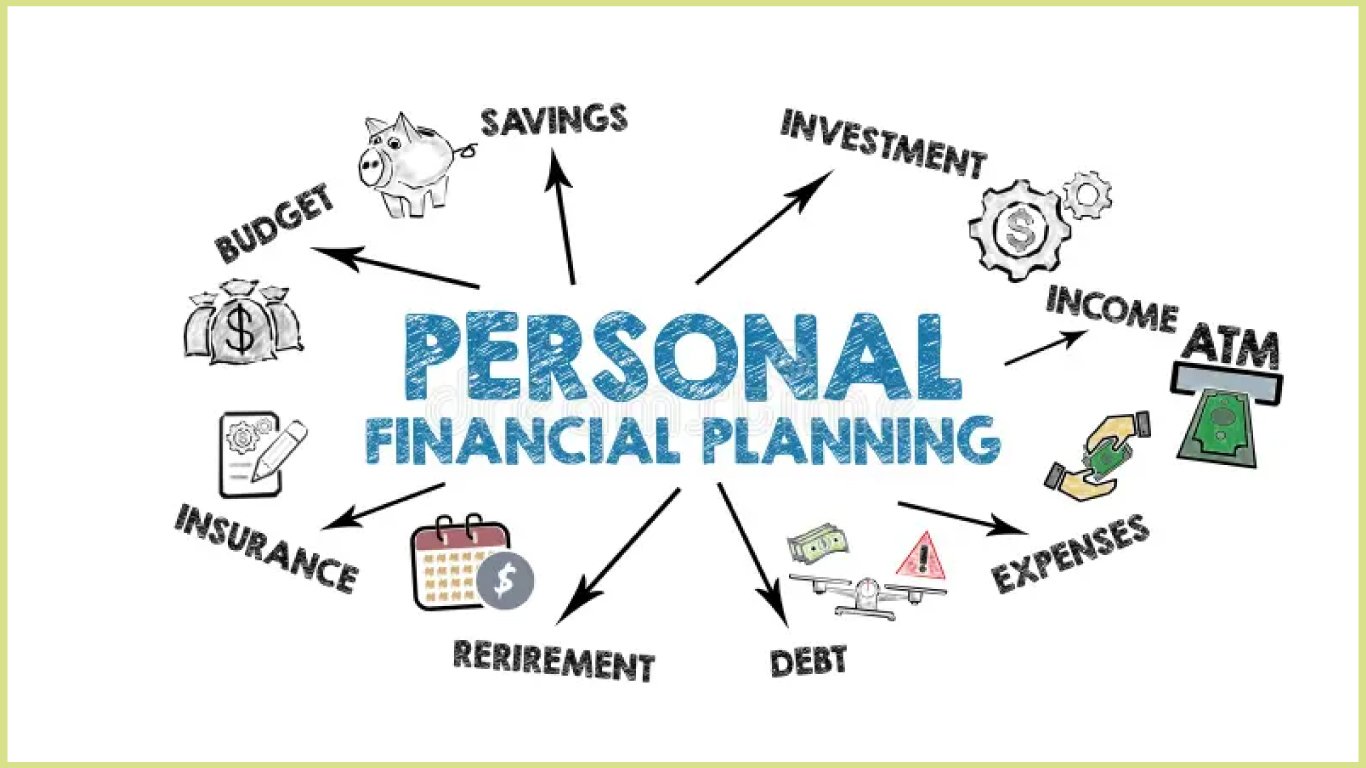The Importance of Financial Planning A Roadmap to Secure Your Future
In today’s fast-paced world, managing finances effectively has never been more crucial. Financial planning isn’t just for the wealthy or those nearing retirement; it’s for everyone at any stage of life. Whether you’re just starting your career, raising a family, or preparing for retirement, a solid financial plan can be your guide to making informed decisions, achieving your goals, and ensuring a stable future. Here’s why financial planning is essential and how you can take control of your finances.
1. Understanding Financial Planning
At its core, financial planning involves creating a strategy to manage your money in a way that helps you achieve your personal and financial goals. It’s about understanding where your money is going, how much you’re saving, and where you can make adjustments. Financial planning covers areas such as budgeting, investing, insurance, debt management, and retirement planning.
2. Setting Clear Financial Goals
One of the first steps in financial planning is setting clear, achievable goals. These goals can range from short-term objectives, like saving for a vacation or paying off a credit card, to long-term ones, such as purchasing a home, sending children to college, or securing a comfortable retirement.
When setting goals, it’s important to make them specific, measurable, achievable, relevant, and time-bound (SMART). This approach not only gives you direction but also helps you stay motivated as you make progress toward achieving them.
3. Creating a Budget: The Foundation of Financial Health
A well-structured budget is the backbone of any financial plan. It allows you to track income and expenses, ensuring that you’re living within your means. By categorizing your spending, you can identify areas where you can cut back and save more.
Start by listing all your income sources, including salary, bonuses, and any side income. Then, track your expenses, from essential ones like rent, utilities, and groceries, to discretionary expenses such as dining out and entertainment. Once you have a clear picture, aim to allocate a portion of your income to savings and investments.
4. Building an Emergency Fund
Life is unpredictable, and an emergency fund provides a financial cushion when unexpected events arise, such as medical emergencies, job loss, or urgent repairs. Ideally, aim to save three to six months' worth of living expenses in a high-interest savings account or a money market account.
Having an emergency fund not only offers peace of mind but also prevents you from going into debt when unforeseen circumstances occur. It’s essential to treat this fund as a non-negotiable expense in your budget.
5. Debt Management: Taking Control of Your Obligations
Managing debt is one of the most important aspects of financial planning. High-interest debt, such as credit card balances, can quickly spiral out of control, making it harder to achieve your financial goals.
Start by assessing your debts and creating a strategy to pay them down. The snowball method (paying off the smallest debts first) or the avalanche method (tackling high-interest debts first) are two popular strategies. The goal is to eliminate debt as quickly as possible so that you can start building wealth.
6. Investing for the Future
Investing is a key component of long-term financial planning. While saving helps you accumulate funds for immediate needs, investing allows your money to grow over time, keeping pace with inflation and increasing your wealth.
There are many types of investments, from stocks and bonds to real estate and mutual funds. The best investment strategy depends on your risk tolerance, financial goals, and time horizon. Consult with a financial advisor to help you select the right mix of investments and build a portfolio that aligns with your objectives.
7. Retirement Planning: Securing Your Future
Retirement might seem far off, but the earlier you start planning for it, the better off you’ll be. Take advantage of employer-sponsored retirement plans like 401(k)s, which often come with matching contributions, and individual retirement accounts (IRAs), which offer tax benefits.
Calculate how much you’ll need to live comfortably in retirement, considering factors like healthcare costs, lifestyle, and inflation. The more you save and invest now, the less you’ll have to rely on Social Security or pensions later on.
8. Regularly Review and Adjust Your Plan
Financial planning is not a one-time task; it requires regular reviews and adjustments. As your life circumstances change – whether through marriage, having children, receiving a promotion, or dealing with an unexpected financial setback – your financial plan should evolve.
Set aside time each year to evaluate your progress and make any necessary adjustments to your budget, savings goals, investments, or insurance coverage. This will keep you on track and ensure that your plan continues to align with your evolving needs.
9. Seeking Professional Help
While it’s possible to create and manage your financial plan on your own, seeking the help of a certified financial planner can provide additional guidance, especially if you have complex financial situations or need help with investment strategies. A financial planner can help you create a customized plan, optimize tax strategies, and keep you on track to reach your goals.
Conclusion
Financial planning is the key to achieving financial freedom and security. By setting clear goals, managing your spending, saving for emergencies, tackling debt, and investing for the future, you can build a strong financial foundation that supports your dreams and protects you against financial uncertainties. The earlier you start, the better equipped you’ll be to live the life you envision – without worrying about money.
No matter where you are in your financial journey, take the time to create a comprehensive financial plan. Your future self will thank you for it.
